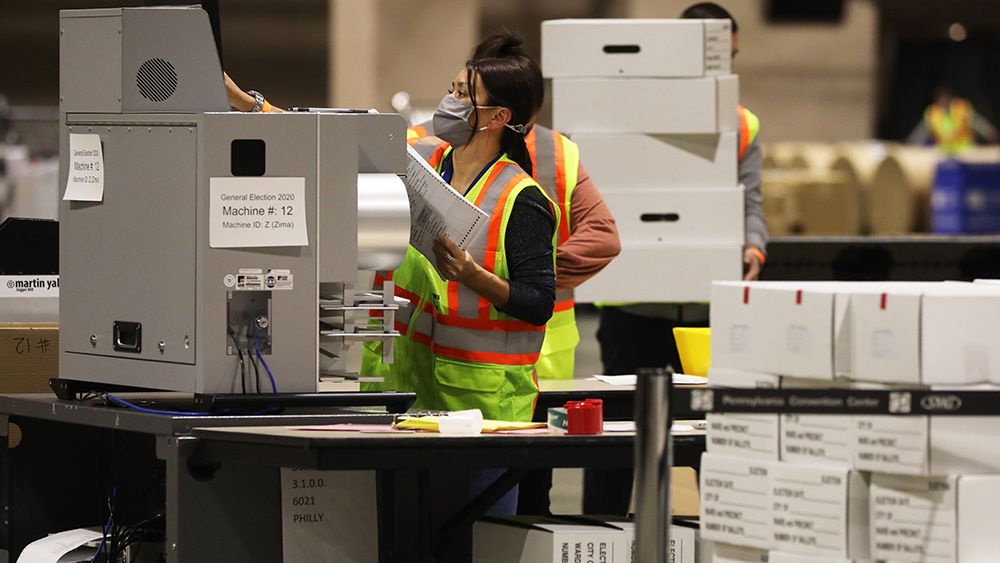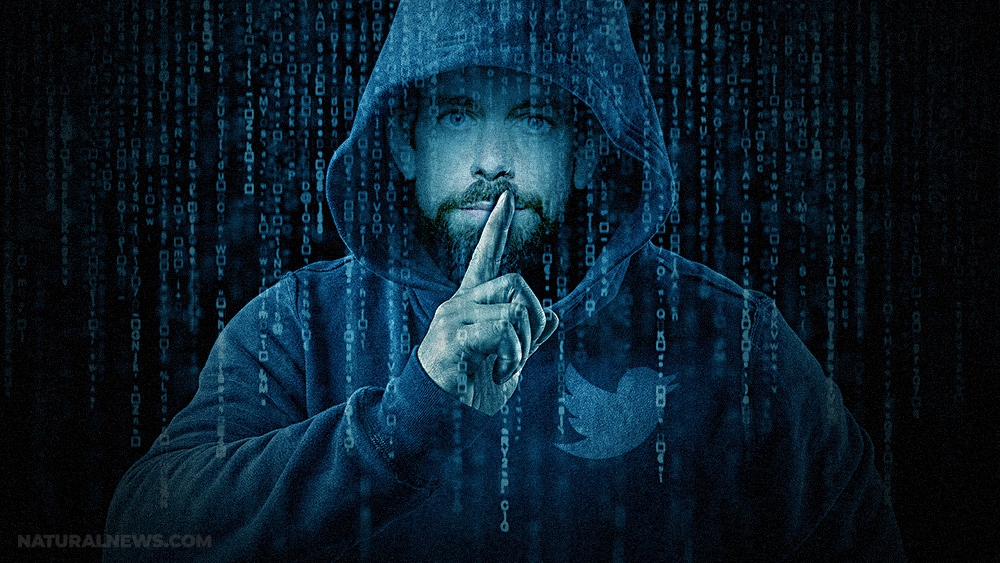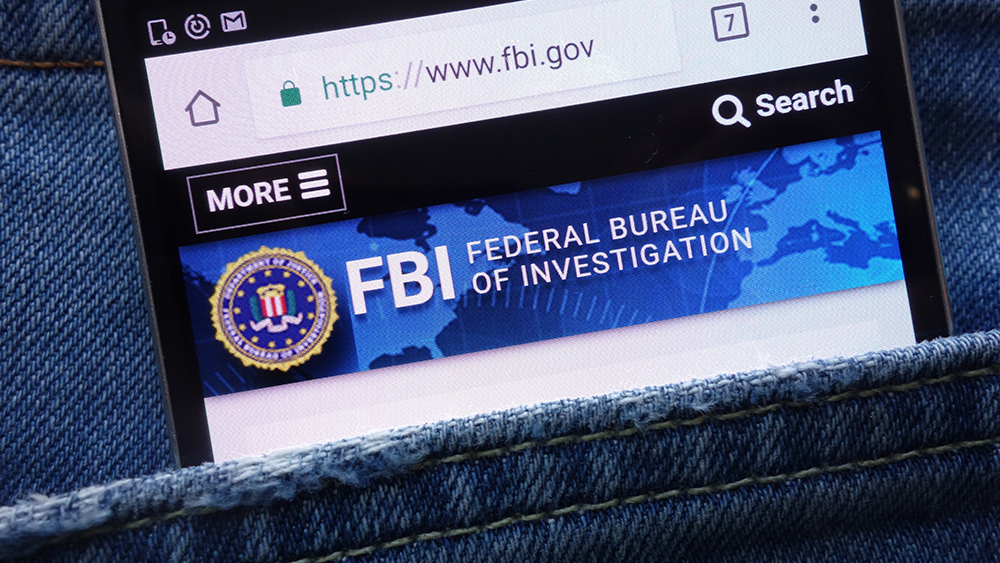
A Republican poll observer working in Detroit's TCF Center during Election Day testified that the election workers did not disqualify any of the mail-in ballots that they received.
During an interview, poll watcher and whistleblower Chris Schornak testified that a lot of the challenges brought up by GOP poll watchers like himself were rejected by election officials. "They refused to put challenges in the electronic log." He said he was only able to get two of his many ballot challenges through, and that he had to fight tooth and nail for them to be accepted.
"I saw a ballot for Taniqua Haynes, it comes up in the computer as the wrong ballot number," said Schornak. "They mailed her ballot number '5,748,' but that's not what she sent back."
Schornak said election officials assigned the voter a new ballot. He asserts that the ballot should have been considered spoiled. "They didn't disqualify a single ballot," he said. (Related: Who says there's been no vote fraud? Michigan poll worker with sheafs of affidavits begs to differ at bombshell hearing.)
Schornak asserts that poll workers at the TCF Center overrode the election rules to accept as many ballots as possible. This, he said, affected at least several thousand ballots that did not follow Michigan's standards but were counted anyway. Some mail-in ballots were even sent by people who could not be authenticated as legitimate voters.
Furthermore, Schornak witnessed a pattern of harassment and intimidation done by the TCF Center's election workers against poll observers like himself. One woman, he notes, followed him around and harassed him for at least five hours.
This echoes claims from other witnesses who testified that election workers enforced their rules on poll observers differently depending on the watchers' partisan allegiances. He said he saw Democratic observers speak with poll workers freely, while Republican ones were shunned if they tried to do the same.
When he went to observe the election processes at Royal Oak, a small city directly to the north of Detroit, he saw similar irregularities. He noted that, out of nearly 26,000 ballots, only 10 challenges were accepted and logged. He stated that this is very unusual.
"I kept seeing a voter birthdate of 1900. I could tell it wasn't right. I tried to document it, but so many things were going on and I was flustered. I think they were just creating a record for those people in order to process their ballots. They had a systematic way of doing it, they were good at it. It was coordinated and it was organized."
When asked the difference between the elections in Detroit and Royal Oak, Schornak responded by saying that the vote counting at the TCF Center was "just awful."
Fewer mail-in ballots tossed out despite record number of absentee voters
Over 100 million people voted early for the 2020 election. This includes 36 million who voted early in-person and more than 65 million who submitted mail-in ballots. Despite this record-breaking turnout and the fact that the mail-in voting system in most states has never been tested on such a massive scale, fewer ballots have been rejected, especially in battleground states.
In 2016, around 33.5 million voters cast their ballots by mail. More than 400,000 of those ballots were rejected. In 2018, 30.2 million voted by mail and nearly 628,000 ballots were rejected.
The main reasons ballots are rejected are because they didn't follow state laws, such as missing the deadline for mailing them in, not signing the ballot or a voter's signature being mismatched.
In some places, the mail ballot rejection rate is even lower than the average of around one percent. In Nevada, only 0.58 percent of mail ballots were rejected. In Pennsylvania, a staggeringly low 0.28 percent of ballots were rejected, which accounts for less than 7,500 of the more than 2.6 million votes by mail.
And in Michigan, where 3.3 million people voted by mail, only 0.46 percent of ballots – around 15,000 votes – were rejected. State officials have denied outright that fraud or irregularities occurred in a scale that would overturn the state's election results.
Many experts believed that rejection rates would balloon for the 2020 election, especially since the primary elections earlier this year saw more than 550,000 mail ballots being rejected.
This expected surge in rejected ballots did not occur, and no expert has a proper explanation as to why that is the case.
Learn more about instances of voter fraud in battleground states like Michigan, as well as the brave whistleblowers like Schornak shining a light on the corruption by reading the latest articles at VoteFraud.news.
Sources include:
NVSOS.gov [PDF]
Please contact us for more information.





















